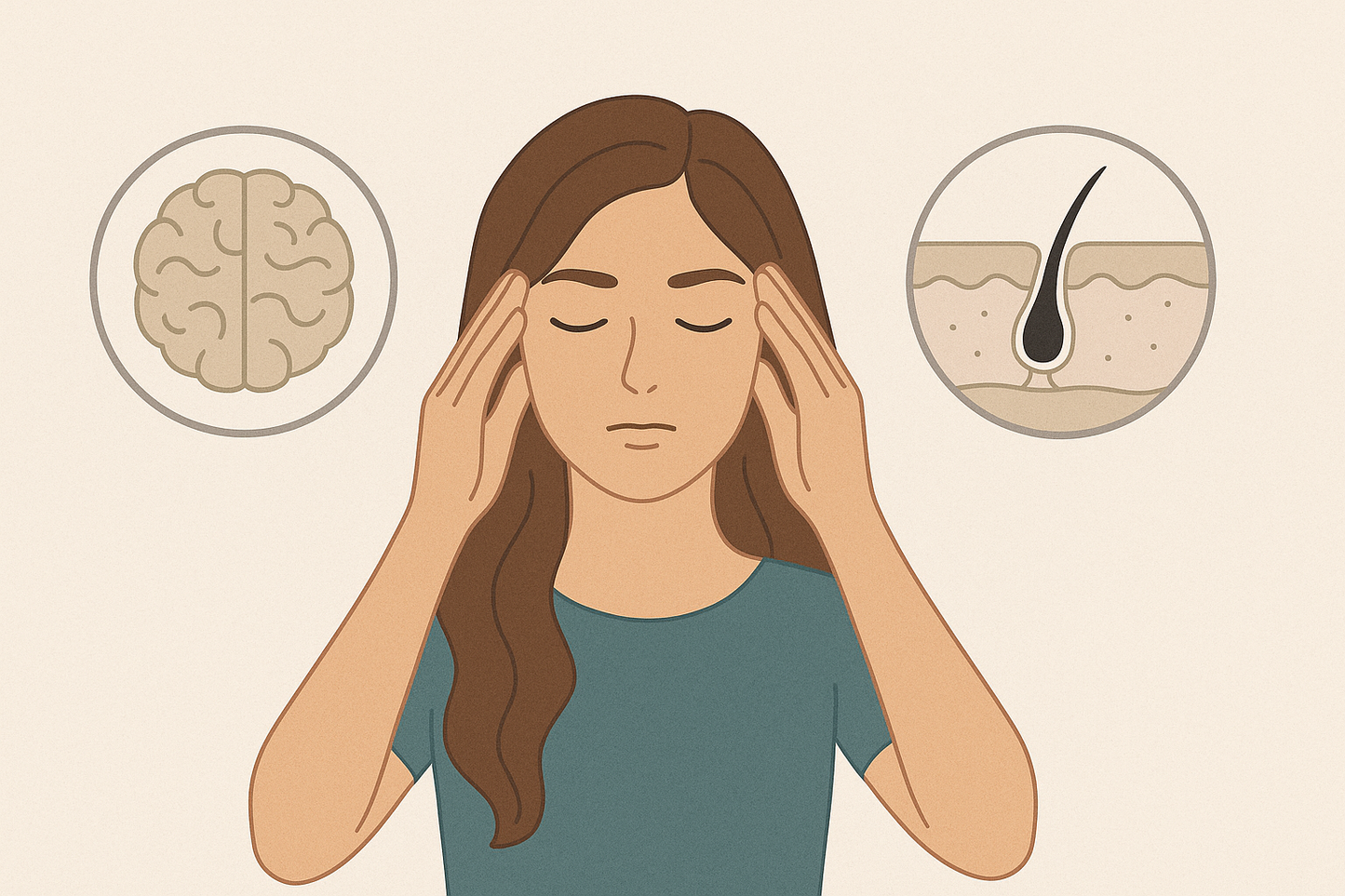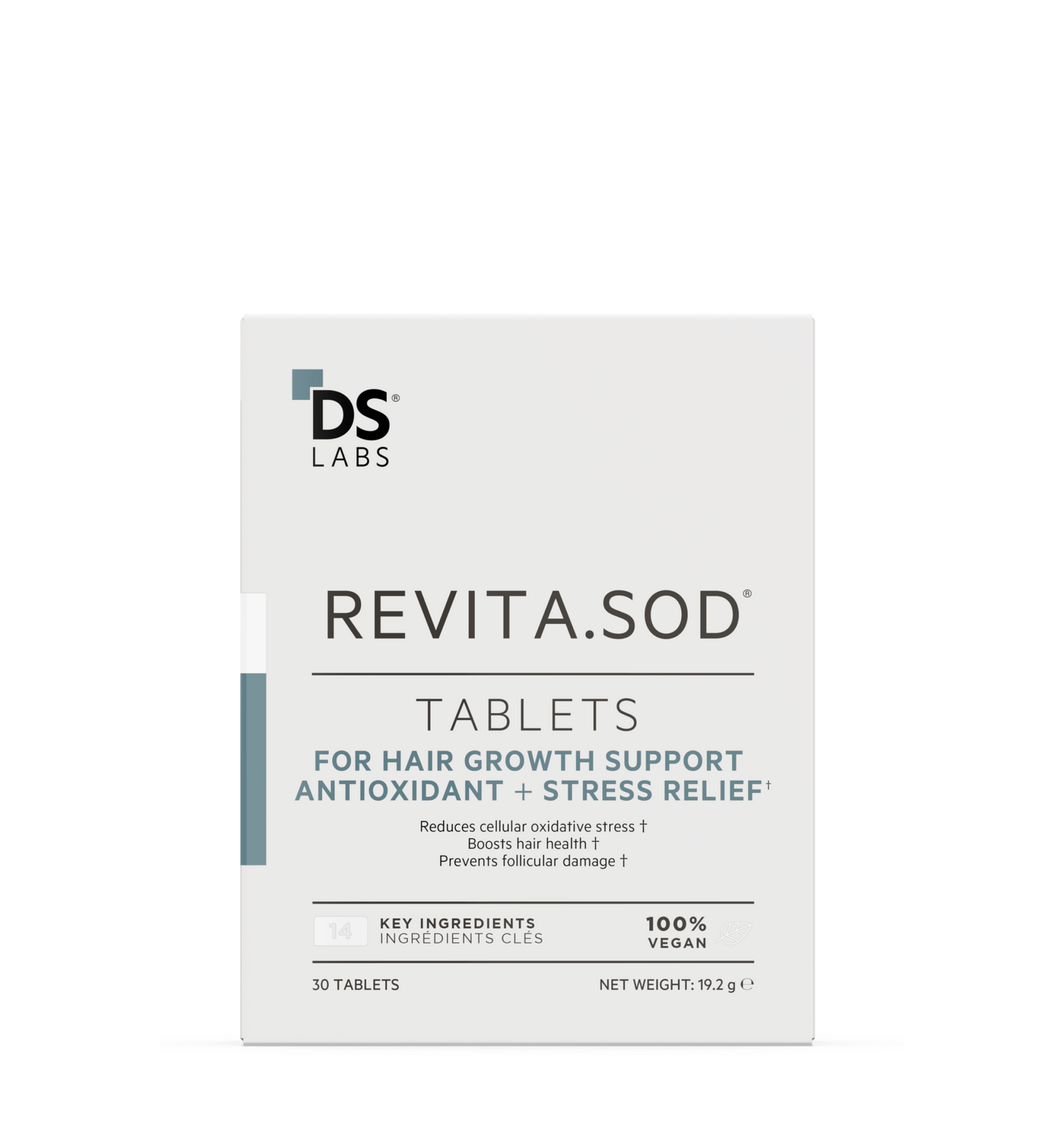At DS Laboratories, we believe that healthy hair starts from within — not just from what you apply externally, but from the balance you create in your body and mind. While most conversations around hair focus on ingredients, routines, and treatments, few people realize how closely mental well-being and hair health are intertwined.
Stress, anxiety, and emotional exhaustion don’t just affect how we feel; they can change the way our hair grows, sheds, and even how it looks day to day.
When Stress Shows Up on Your Scalp
Your hair follicles are extremely sensitive to internal changes, especially those driven by hormones. When the body experiences prolonged stress, it releases higher levels of cortisol, which can interrupt the natural hair growth cycle.
Instead of staying in the anagen phase (the active growth stage), many follicles shift prematurely into the telogen phase, where shedding occurs. This condition, known as telogen effluvium, often appears a few months after a stressful event or period of anxiety.
Stress can also reduce blood flow to the scalp, limiting the delivery of oxygen and essential nutrients that keep follicles strong. Over time, this can lead to dullness, breakage, and a noticeable decrease in density — all subtle reflections of what’s happening inside the body.
The Scalp–Mind Connection
The scalp is more than a surface — it’s living tissue that mirrors our internal state. Just like our skin can break out or flare up when we’re stressed, the scalp can react with inflammation, flaking, or changes in oil production.
Emotional tension often creates micro-tightness in the scalp muscles, which can restrict circulation and affect follicle function. That’s why practices that calm the nervous system — like mindfulness, deep breathing, or a simple scalp massage — can make a visible difference over time. When your mind relaxes, so does your scalp.
The Role of Routine in Mental Wellness
Having a consistent self-care routine can become an anchor during stressful periods. Setting aside time to focus on yourself — whether it’s during your hair-care ritual, a morning walk, or quiet time at night — helps regulate cortisol and restore a sense of control.
The act of caring for your hair can be a form of mindful maintenance. It’s a small daily ritual that signals to your body that you’re prioritizing yourself, reinforcing a healthy mind-body connection.
When to Pay Attention
Your hair often reflects what your body and mind are going through. Signs that your mental health may be affecting your hair include:
- Sudden or increased shedding
- Dry, brittle, or dull strands
- Excess oil or scalp irritation
- Slower regrowth following stressful events
These are not just cosmetic concerns — they’re messages from your body asking for restoration, balance, and care.
Reconnecting with Yourself
Supporting your hair means supporting your overall well-being. Small daily choices — getting enough rest, staying hydrated, eating nutrient-rich foods, exercising, and managing stress — all contribute to a healthier scalp environment.
When you take care of your mental health, your hair benefits too. Reduced stress improves circulation, regulates hormones, and allows your body to dedicate more resources to renewal and growth.
At DS Laboratories, we view hair care as part of a holistic approach to wellness — one that values both science and self-connection. Because true hair health isn’t just about what’s on the surface; it’s a reflection of what’s happening beneath it.















